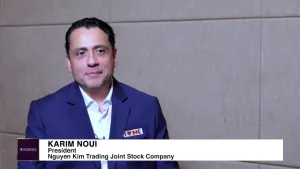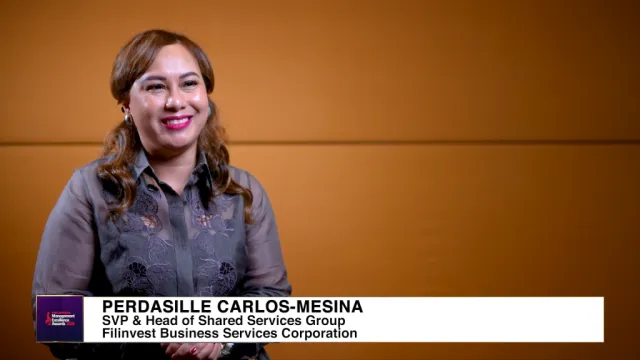
KPMG’s Farhan Syed talks about the opportunities for businesses on their road to digitalisation
He is one of the judges at the inaugural Middle East International Business Awards.
Farhan is a partner and the head of Advisory for KPMG Middle East and South Asia (MESA) and Lower Gulf. He is also a board member and part of the Executive Committee of the Lower Gulf firm. In addition, he leads the Digital and Innovation practice, which, under his leadership, has expanded rapidly.
Farhan brings a wealth of experience and has delivered numerous projects in the UAE, Saudi Arabia, South Africa, Turkey, Australasia, the UK, the US, Sweden, and India. He has worked with senior executives in financial services, telecommunications, retail, hospitality, aviation, mining, and the public sectors.
Asian Business Review took the opportunity to speak with Farhan regarding current trends and opportunities for businesses in the Middle East, and what they should consider as they adopt digital transformation across their operations.
Can you share with us your work experience or a backstory that has contributed to your expertise?
I joined KPMG Lower Gulf (UAE and Oman) in 2015, when the Advisory practice comprised only a handful of partners. I successfully built the digital transformation practice from scratch to over 100 full-time equivalents, before taking over as the head of the Advisory in early 2020. Both the Digital and Innovation and Advisory practices continue to grow rapidly. Today, the latter represents the largest portion of the firm’s business.
In addition to my current role in the Lower Gulf, I also serve as the head of Advisory for KPMG’s MESA region. My regional experience and global mindset—stemming from time working abroad in the US, UK, and Australia—lend themselves well to this role.
My entrepreneurial mindset originated in my teenage years when I established a music recording, events, and DJ’ing business. I am a proud father of three daughters and an avid scuba diver. I am also a member of the Young Presidents Organization, a global leadership community of about 29,000 members in 130 countries.
Which trends do you think will define businesses in the Middle East for the years to come?
The main trend appears to be one of steady business growth across every industry—supported by a stable political environment, the push to move away from an oil-centric economy, and major local events attracting tourists to the region.
The Middle East is enjoying a period of political stability, with diplomatic relationships improving across its constituent countries. The Abraham Accords, signed in August 2020, marked the first public normalization of relations between an Arab country and Israel since 1994. Middle Eastern countries have strong economic relationships with superpowers like the USA and China. From a social standpoint; the UAE, Bahrain, and Qatar have very high vaccination rates as a result of multiple vaccination drives by the government.
From an economic point of view, key indicators for oil and gas have remained at average levels over the past few years. The current volatility in oil prices may impact debt levels and the gross domestic product, triggering further investment as governments strive to encourage diversification away from the oil economy.
KSA is particularly undergoing significant transformation, as it revamps both its hard and soft infrastructure. The UAE has introduced policies, like 100% ownership for business owners, designed to encourage long term residency and greater access to citizenship.
Middle Eastern countries can also look forward to a slew of exciting events ranging from Expo 2020 and the Indian Premier League in the UAE, and the FIFA World Cup in Qatar. These are likely to improve consumer sentiment and provide a boost to their respective economies.
This trend of muted growth, built upon a foundation of the factors outlined, is expected to continue for the foreseeable future, cementing the Middle East’s position as an attractive destination for both tourists and investors.
Almost all industries in the region have been severely affected by the pandemic. What's your advice to those who are in the early stages of recovery?
All organizations need to establish cross-functional teams and take into account three key factors:
- Companies should analyze consumer behaviour to determine the method of consumption, if delivering a particular product is still relevant, and what has fallen into obsolescence. After the onset of COVID-19, consumer behaviour changed across every segment and every industry. Organizations need to understand how to adopt products and services to appeal to the new consumer.
- Given that the world is still in the midst of the pandemic, organizations need to rehaul their business’ continuity management policies and be poised to deal with surprises and contingencies. For instance, some may be well advised to shift to an online model, whilst others may need to consider their cash flow strategies.
- It is vital for companies to take care of their most important asset, their people. In particular, they should pay attention to their wellbeing and consider how trauma and burnout caused by the pandemic may have affected their productivity. There is no clear path to return to “normal”; appreciating that COVID-19 would have led to behavioural change across employees is the first step.
Where are the opportunities in the Middle East for businesses to explore and how can they leverage these?
Opportunities abound across every sector: the Middle East enjoys significantly high technology adoption and smartphone penetration. The cultural diversity and demographic composition make the region unique, presenting a highly interesting proposition for companies. The government is progressive and very receptive to new ideas. There are tremendous opportunities for investment in manufacturing, entertainment, financial services, and transformation. The aviation and hospitality sectors are both recovering. We believe that organizations that are able to tap into these high-potential areas are likely to reap the rewards and grow their businesses.
How has digital transformation affected the way companies are being formed today? What are some opportunities that businesses should consider to start their road to digitalisation?
In the past, four main cornerstones of technology were key to leading business transformation: mobile, social, data, and the cloud. Today, we are seeing the advent of another set. This includes artificial intelligence, extended reality, 5G, and quantum computing. The previous four brought us to where we are now; the new order will bring about the next phase of the digital revolution.
Technological adoption must be reimagined. A large number of organizations are currently going through a transformation, whilst others have remained loyal to a more traditional approach. Instead of innovation being relegated to solely native technology firms, we are seeing startups pair with mature solution providers to create bespoke offerings as they embrace agility and adopt new deliverable techniques.



















 Advertise
Advertise









